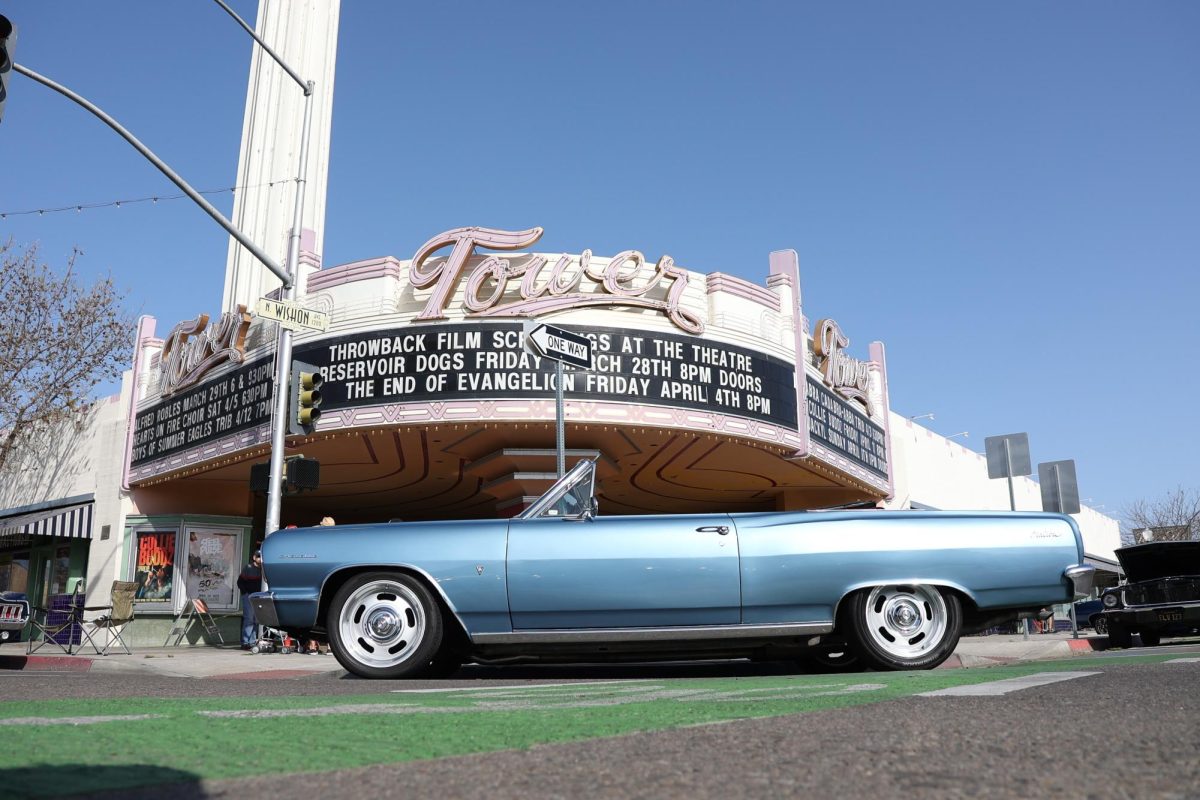“Oppenheimer,” which debuted in theaters on July 21, is not a glamorized story about Robert J. Oppenheimer. It is the chronicling of the regret a man harbors at the realization that he is responsible for the creation of the atomic bomb.
Many can debate over what is the most consequential invention in the history of humanity. However, the atomic bomb, along with the subsequent research and creation of the hydrogen bomb, are among the most influential in modern history. The atomic bomb is synonymous with utter and complete destruction, something that Oppenheimer, played by Cillian Murphy, understands and tries to mitigate after realizing the true power of the bomb.
Murphy’s performance is complex. His character struggles to manage the Manhattan Project, while also dealing with an extramarital affair and the ethical concerns of unleashing the atomic bomb on the world. We see moments of despair and success, but we also see him fumble his words and become visibly shaken in multiple scenes. It gives us a view of a man who, although spearheaded the development of the first atomic weapon, is fallible and unsure of himself.
Contrary to online discourse, the film isn’t about glorifying Robert J. Oppenheimer or scrubbing clean the history of his involvement in the Manhattan Project. Director Christopher Nolan makes it clear through the film’s narrative that Oppenheimer resents the creation of the atomic bomb. In fact, we see Oppenheimer go to great lengths to dissuade both scientists and the American government from using the bomb, even going as far as to downplay the possibility of developing a hydrogen bomb. Though he once held a great urgency to create the bomb to use against the Nazis, he realizes that by the time the Manhattan Project is done and the bomb is developed, it will be used against Japan. When Oppenheimer is helmed as the “father of the atomic bomb” by the media, the thought of the casualties from Hiroshima and Nagasaki weigh heavily on him.
Nolan pulls no punches in conveying the horrible power of an atomic bomb. The audience is constantly put in the shoes of Oppenheimer, who sees destruction in every facet of his life. Nolan’s use of loud sound design and discomforting imagery perfectly encapsulates the raw and terrible energy release from nuclear fission.
This is best exemplified during the Trinity test explosion in New Mexico. When the test bomb goes off and a flash of light illuminates the faces of the scientists and military personnel, audiences expect a massive boom, but instead, they are treated to a dull droning noise. This prolonged silence fills you with dread. You know the sound of the explosion is coming, but you don’t know when. You’re left disoriented, almost panicked by both the thought of a nuclear weapon being set off only miles away and by the look of shock on the faces of the cast.
Nolan’s use of IMAX makes the visuals of the film supreme. Every shot is striking and awe-inspiring. Simply put, the quality of the IMAX camera is put on full display to give audiences a better, more superb picture than can be achieved on a regular digital camera.
What keeps the narrative engaging is the supporting cast. With talent like Florence Pugh, Matt Damon, Emily Blunt and Robert Downey Jr., among many other actors who play important roles in the film, the story is driven forward by an ensemble of complex characters who not only serve to support Murphy’s role, but also as obstacles to the story.
Most notably, Downey Jr.’s role as Lewis Strauss is powerful and intimidating. As Chairman of the Atomic Energy Commission, he is ultimately responsible for Oppenheimer’s loss of his government security clearance because of his past ties to the Communist Party. Downey Jr.’s menacing demeanor and the prideful manner in which he carries himself as Strauss is refreshing to witness; instead of playing a hero, he plays a spiteful government official that we love to hate.
Without a doubt, “Oppenheimer” is a must-see film for the summer, especially considering the aspect ratio and quality of IMAX projectors. This is one film you must watch in IMAX in order to get the true vision that Nolan and the cast set out to be experienced.






















